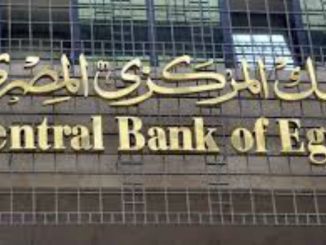
Egypt’s revenues from Suez Canal trade recorded a three-year low in February after registering $375.8 million compared to $401.4 million the same month last year, according to data from the Suez Canal Authority published by the state-run Egypt Information Portal (EIP).
Suez Canal receipts recorded $339 million in revenue in February 2014.
EIP stated that in February of this year, 1,286 ships passed through the Egyptian waterway compared to 1,369 the month before.
Last month, receipts declined slightly compared to January, when it registered $395.2 million.
Suez canal is one of Egypt’s main sources of foreign currency. Moreover, al-Sisi’s latest inaugurated expansion to the Suez Canal known as the so-called “New Suez Canal “was expected to increase the revenues of the canal.
However, the latest inaugurated expansion has ended to be misleading.
Many of al-Sisi’s promises have proven hyperbolic.
Revenue has fallen parallel with the decline in global trade and the losses suffered to the International Monetary Fund’s Special Drawing Rights (SDR), the asset of account that is collected as a tariff by the Suez Canal Authority.
In addition, while in some months since the expansion there has been an uptick in maritime traffic through the canal, it has not come close to fulfilling the grand promises Egyptian officials made at its inception.
Since the military coup in 2013 led by Al-Sisi, Egypt has been witnessing unprecedented economic crisis – youth unemployment approaching 50%, a falling currency and remittances, as well as a crisis in tourism and foreign investment.
Tourism and foreign investments, the two main sources for foreign currency, have declined as a result of political instability and lack of security.
The withdrawal of the two main sources of foreign currency led to a severe shortage in foreign currency.
As a result, the Egyptian pound rate has fallen compared to the US dollar and the black market flourished on the currency expense and led to inflation.
Last November, the International Monetary Fund’s executive board approved Egypt’s request to secure $12 billion loan facility after Egypt met its requirements.
On August 30 Egypt started its first steps towards the loan when Egypt’s parliament approved a long-awaited law introducing a value-added tax (VAT) of 13 %, rising to 14% in the next fiscal year.
On November 3, the Central Bank of Egypt floated the Egyptian pound and gave up trying to peg the currency to the US dollar allowing it to devalue by almost half.
On November 4, Egypt took another unprecedented decision, which has always been abandoned by former leaders in fear of public unrest, to cut subsidies for fuel leading to jump in prices.
However, despite taking all these drastic steps, the IMF loan alone won’t help as the North African country still needs to revive its internal sources to allow the flow of foreign currency within the country and thus, stabilizes its currency and contains its inflation rate.
It is noteworthy that the inflation rate has hiked recently after floating the Egyptian pounds.
According to a statement issued by the Central Agency for Public Mobilization and Statistics (CAPMAS), the annual Inflation rate hiked to 24.3% in December, compared to 20.2% in November.



